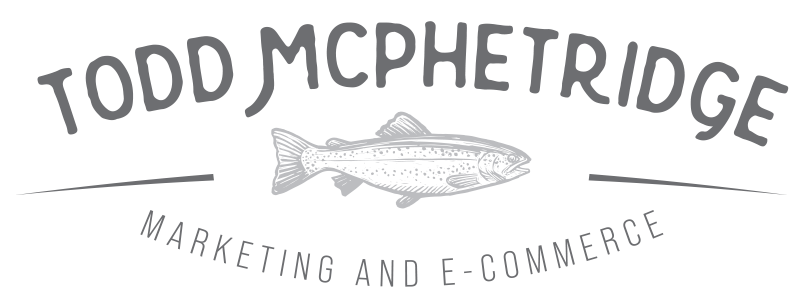Winning paid growth starts with a disciplined split between finding new buyers and converting warm interest. This guide gives performance teams a practical framework to set a defensible prospecting budget, build a profitable remarketing strategy, enforce clear frequency guardrails, and maintain audience hygiene that prevents overlap waste. It is written for ecommerce operators, Shopify brands, and media teams that want rules they can act on this week.
Why the split matters
- Future demand: Prospecting expands reach and stabilizes CAC over time. Remarketing converts faster but saturates quickly.
- Signal quality: New audiences reveal which hooks and offers create intent. Warm pools can mask weak creative with familiarity.
- Budget defense: Clear rules reduce debates and allow weekly reallocation without drift.
Core principles for performance teams
- Prospecting funds growth. Hold a minimum share for net new reach, even when costs rise.
- Remarketing respects attention. Cap frequency, shorten windows, and stop paying for people you already own through email or SMS.
- Overlap is waste. Maintain strict audience hygiene across platforms so you do not pay twice for the same impression.
- Intent controls landing paths. Prospecting often needs comparison or guide content. Remarketing should answer objections near the CTA.
- Judge with cash metrics. Evaluate layers with blended CAC and payback, not platform ROAS alone.
The budget rulebook
Use these ranges as a starting point. Tune by AOV, buying cycle, and seasonality after four weeks of clean data.
| Situation | Prospecting Spend Share | Remarketing Spend Share | Frequency Guardrails | Audience Hygiene Rules |
|---|---|---|---|---|
| Healthy funnel and steady CAC | 60% to 75% | 25% to 40% | Prospecting 1.5 to 2.5 per 7 days, Remarketing cap 5 per 7 days | Exclude purchasers 30 to 60 days, suppress active email and SMS segments during campaigns |
| CAC rising at top of funnel | 50% to 60% | 40% to 50% | Prospecting 1.2 to 2.0, Remarketing cap 4 per 7 days, shorter windows | Remove cold visitors beyond 14 days, prune overlap with lookalikes and broad interests |
| New creative pillars or product launch | 70% to 80% | 20% to 30% | Prospecting 2.0 to 3.0 while testing hooks, Remarketing cap 5 per 7 days | Protect a test lane, exclude sitewide retargeting from test sets for clean reads |
| Inventory constraint on hero SKU | 50% to 65% | 35% to 50% | Prospecting 1.0 to 1.8, Remarketing cap 3 per 7 days | Exclude low stock items in feeds, route warm traffic to substitutes or bundles |
| Heavy promo window | 55% to 65% | 35% to 45% | Prospecting 1.5 to 2.0, Remarketing cap 6 per 7 days during a narrow window only | Exclude coupon redeemers after purchase, cap exposure to avoid deal fatigue |
Landing paths that fit intent
- Prospecting: open with problem and outcome. Use comparison pages, short buying guides, or concise landers that show value, proof, and next step.
- Remarketing: send to PDP or a focused section that handles price, delivery window, returns policy, and trust signals near the CTA.
- High AOV: place price justification early. For new audiences, show materials and cost per use. For warm visitors, highlight warranty and care.
Audience hygiene checklist
- Remove purchasers immediately. Exclude from prospecting lookalikes for a cooling period.
- Suppress engaged email and SMS cohorts during large sends. Do not pay for revenue you already own.
- Deduplicate retargeting pools across platforms. Decide which platform wins each warm scenario.
- Shorten site retargeting windows to match buying cycle. Many categories convert or bounce within seven days.
- Segment warm audiences by signal strength. Separate add to cart, product viewers, and high scroll depth for precise bids and messages.
Creative and offer rules by layer
- Prospecting creative: three or four pillars. Hooks name the job to be done inside three seconds. Use value based offers, not code first.
- Remarketing creative: objections and proof. Show delivery timing, returns summary, and review highlights near the CTA. Favor starter bundles or add ons over deep discounts.
- Catalog ads: maintain feed accuracy and stock logic. Feature margin safe SKUs and hide low inventory items.
Measurement that keeps you honest
- Blended CAC by layer: prospecting vs remarketing across channels.
- Payback by acquisition cohort: confirm that spend splits support cash velocity.
- Frequency distribution: watch the tail above cap, not only the average.
- Entry intent conversion: track landing family performance for each layer.
- Incrementality reads: holdouts on warm audiences to quantify true lift.
Four scenarios and the correct move
Scenario 1: ROAS falls, CAC stable
Platform ROAS drops on prospecting while blended CAC by layer remains inside guardrail. Conversion on comparison pages is steady. Action: maintain the prospecting budget, rotate hooks, and prune interest stacks. Do not starve top of funnel when cash metrics are healthy.
Scenario 2: Strong remarketing ROAS hides overlap waste
Warm campaigns look efficient but spend rises faster than new sessions. Frequency distribution shows a heavy tail above cap. Action: suppress owned lists during sends, shorten recency windows, and enforce a 3 to 5 per 7 day cap. Reinvest savings into high intent prospecting or affiliates.
Scenario 3: CAC spike during seasonal demand
Costs rise across platforms, warm traffic surges, and remarketing converts quickly. Action: shift to a 55 to 45 split temporarily, cap remarketing frequency, and route prospecting to guides that frame value clearly. Return to a growth split after the spike passes.
Scenario 4: Inventory pressure on hero SKU
Top product is low on stock and warm ads still push that SKU. Action: reduce remarketing frequency, promote substitutes in the catalog feed, and move prospecting toward complementary categories until coverage normalizes.
Platform notes
- Paid social: keep a protected test lane for prospecting hooks. Scale only after CAC and payback meet guardrails.
- Search and shopping: layer remarketing lists for search ads with conservative bids. Add negatives to avoid cannibalizing branded and high intent terms.
- Programmatic and display: reserve for creative testing and high intent placements with strict frequency control.
Reallocation rules
- Move five percent of spend from remarketing to prospecting when prospecting CAC is inside guardrail for two weeks and frequency tail is under cap.
- Move five percent of spend toward remarketing when prospecting conversion falls for two weeks and warm pools are underexposed within caps.
- Freeze growth on any layer that breaks payback or exceeds frequency rules. Fix the issue before scaling.
What belongs on the operating scorecard
- Prospecting share versus target range.
- CAC by layer and trend versus guardrails.
- Remarketing frequency average and tail above cap.
- Overlap rate with owned lists and suppression status.
- Entry intent conversion by landing family for each layer.
FAQ for searchers evaluating help
Is there a universal spend split
No. Start with 60 to 75 percent prospecting. Tune based on cohort payback, AOV, and seasonality.
What frequency cap should I use
Five impressions per seven days is a reliable upper bound for remarketing in most consumer categories. Lower the cap if conversion drops while frequency rises.
How do I reduce audience overlap
Exclude purchasers immediately, suppress engaged CRM segments during campaigns, and pick one platform to win the warm impression rather than allowing both to compete.
How should I judge success
Use blended CAC by layer and payback by cohort. These metrics reflect cash, not only clicks.
Ask for a budget split recommendation
If you want a rules driven plan for prospecting and remarketing, ask for a tailored recommendation. I design spend splits, frequency guardrails, and audience hygiene standards that protect efficiency and grow future demand. Provide recent spend, CAC by layer, buying cycle length, and inventory constraints. I will map a budget range, a frequency plan, and suppression rules that fit your model. If you're looking for a freelance marketing consultant, reach out today.

















